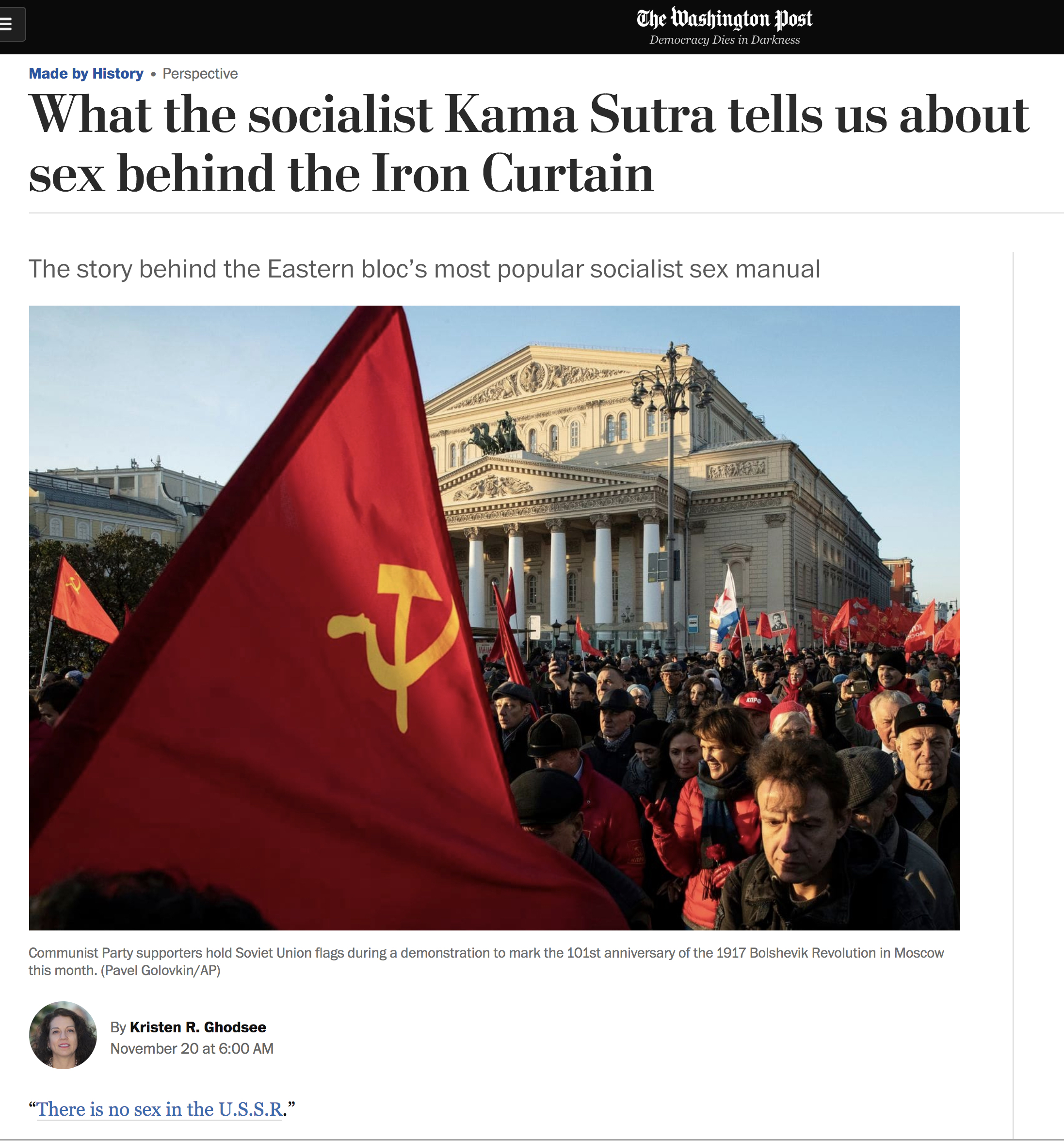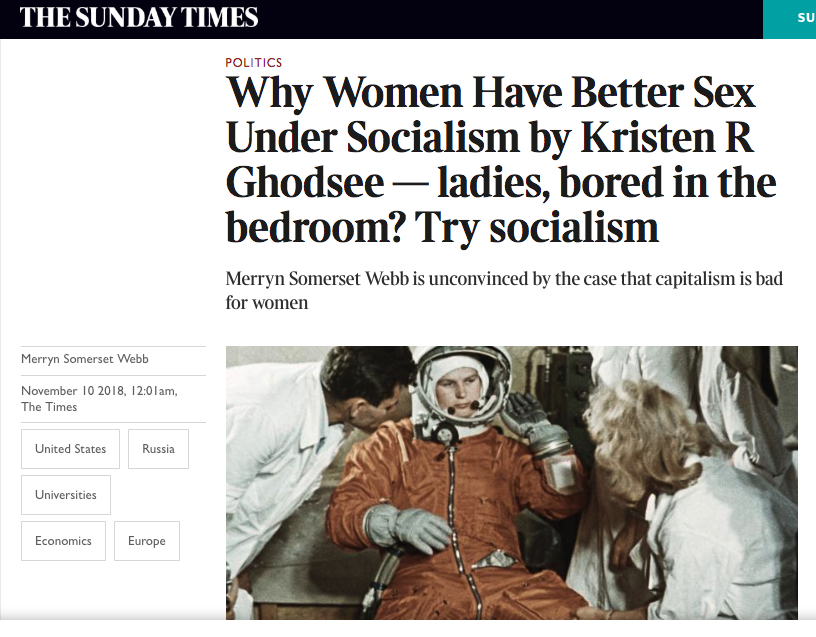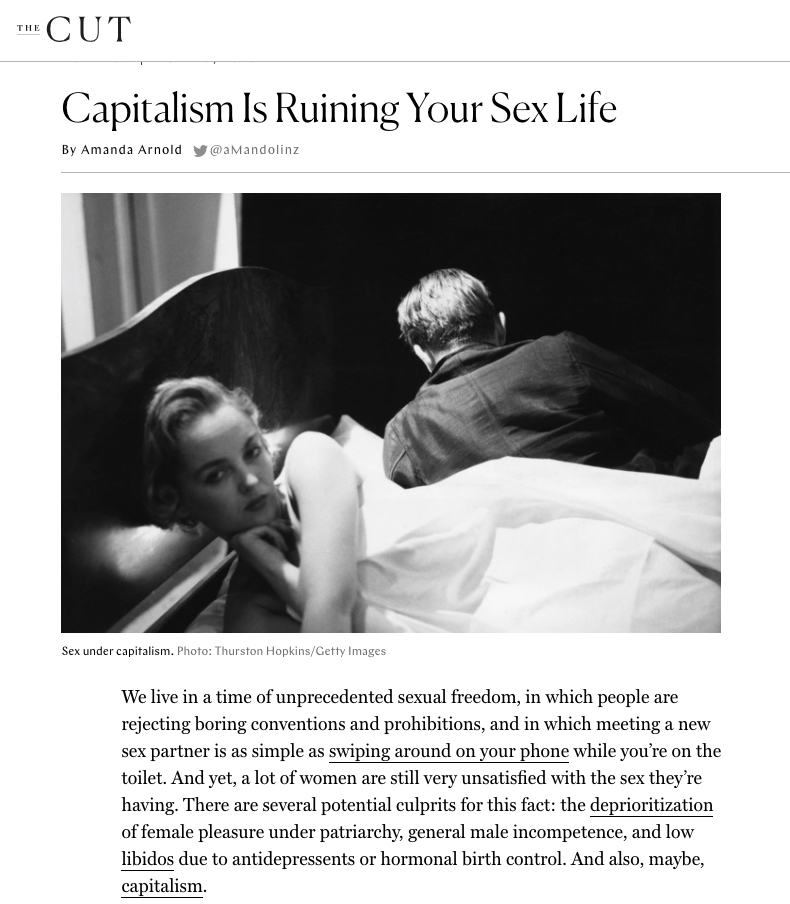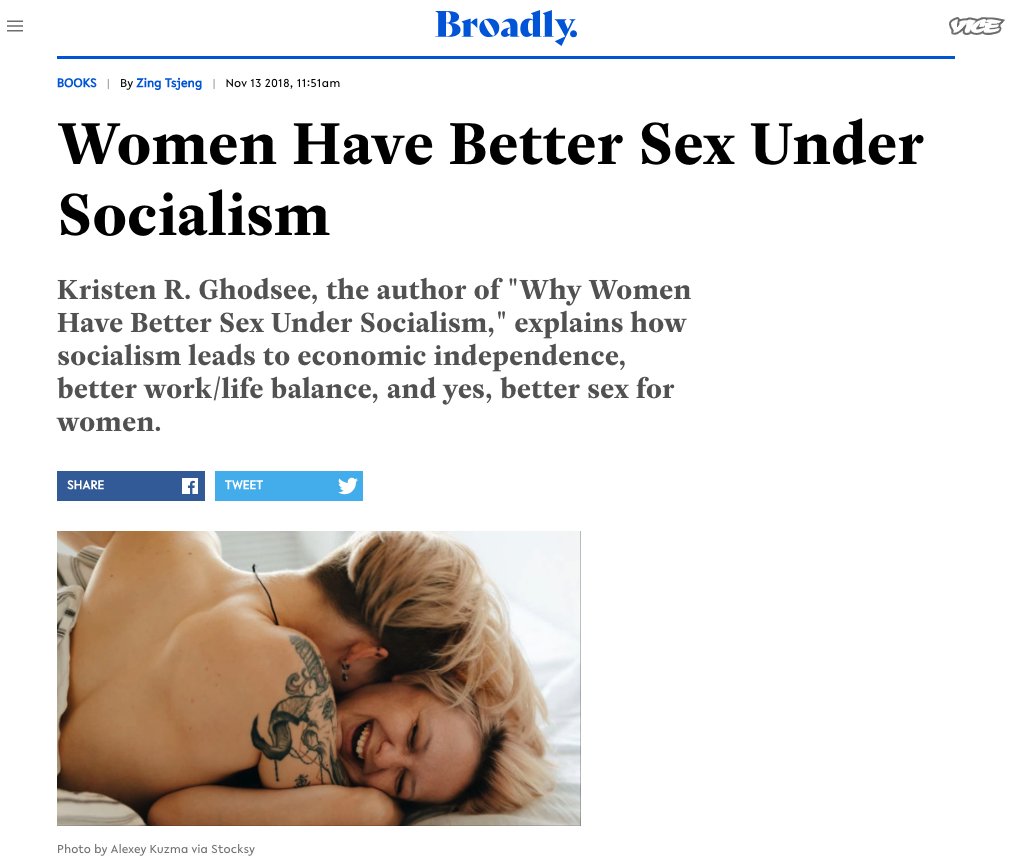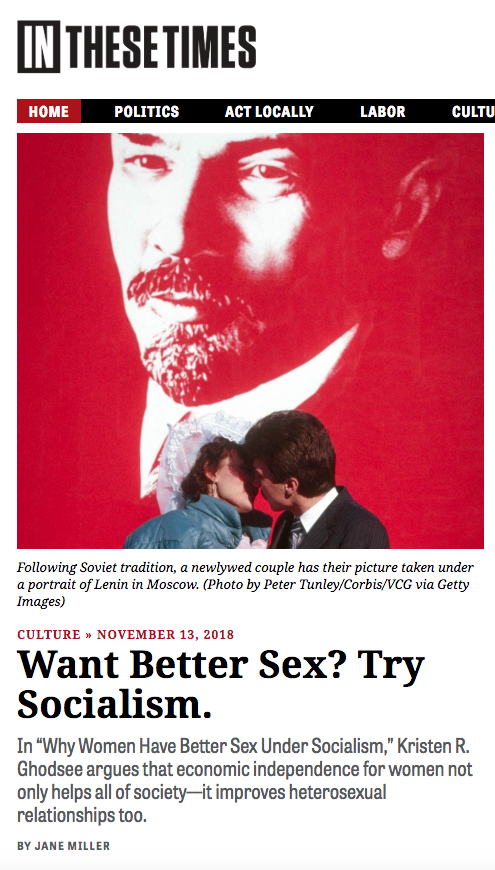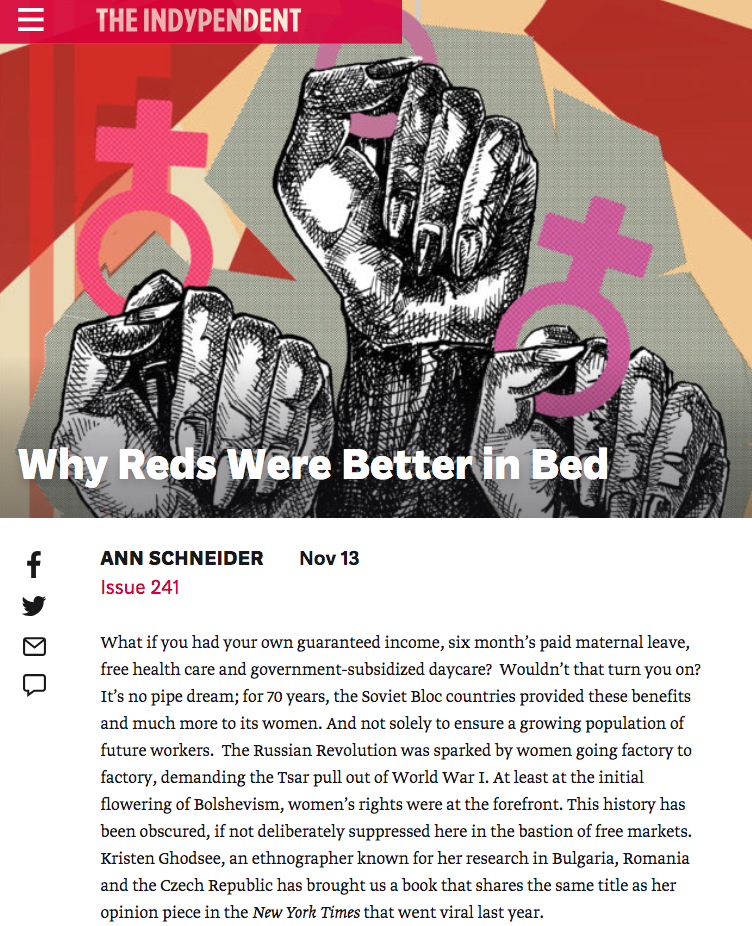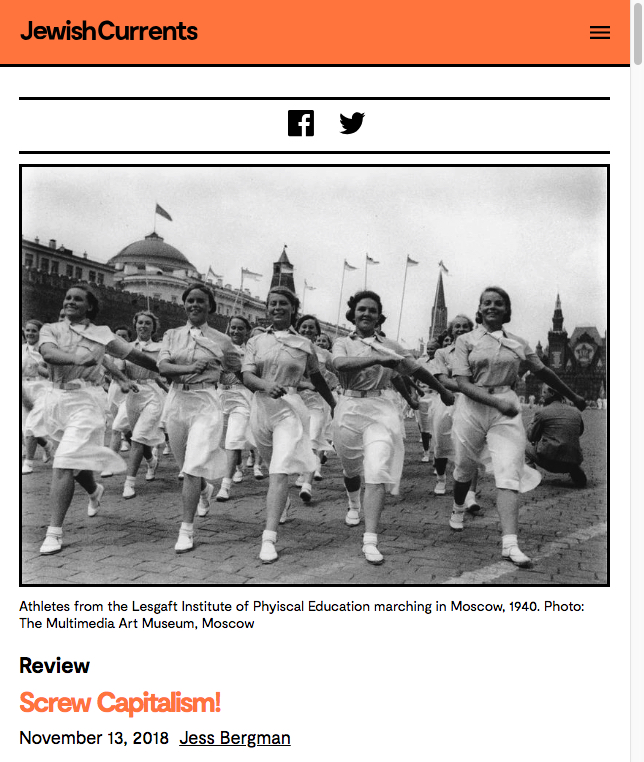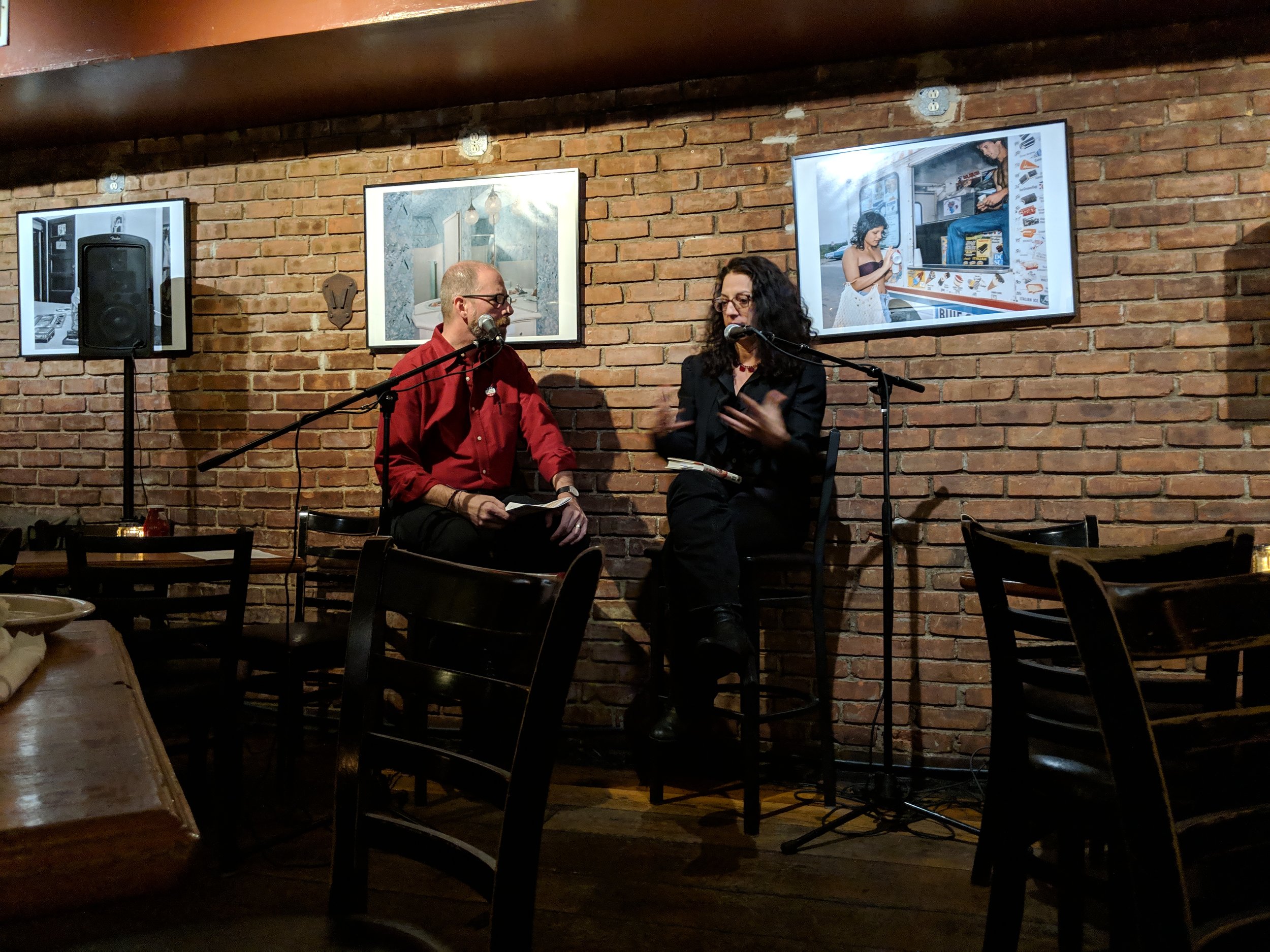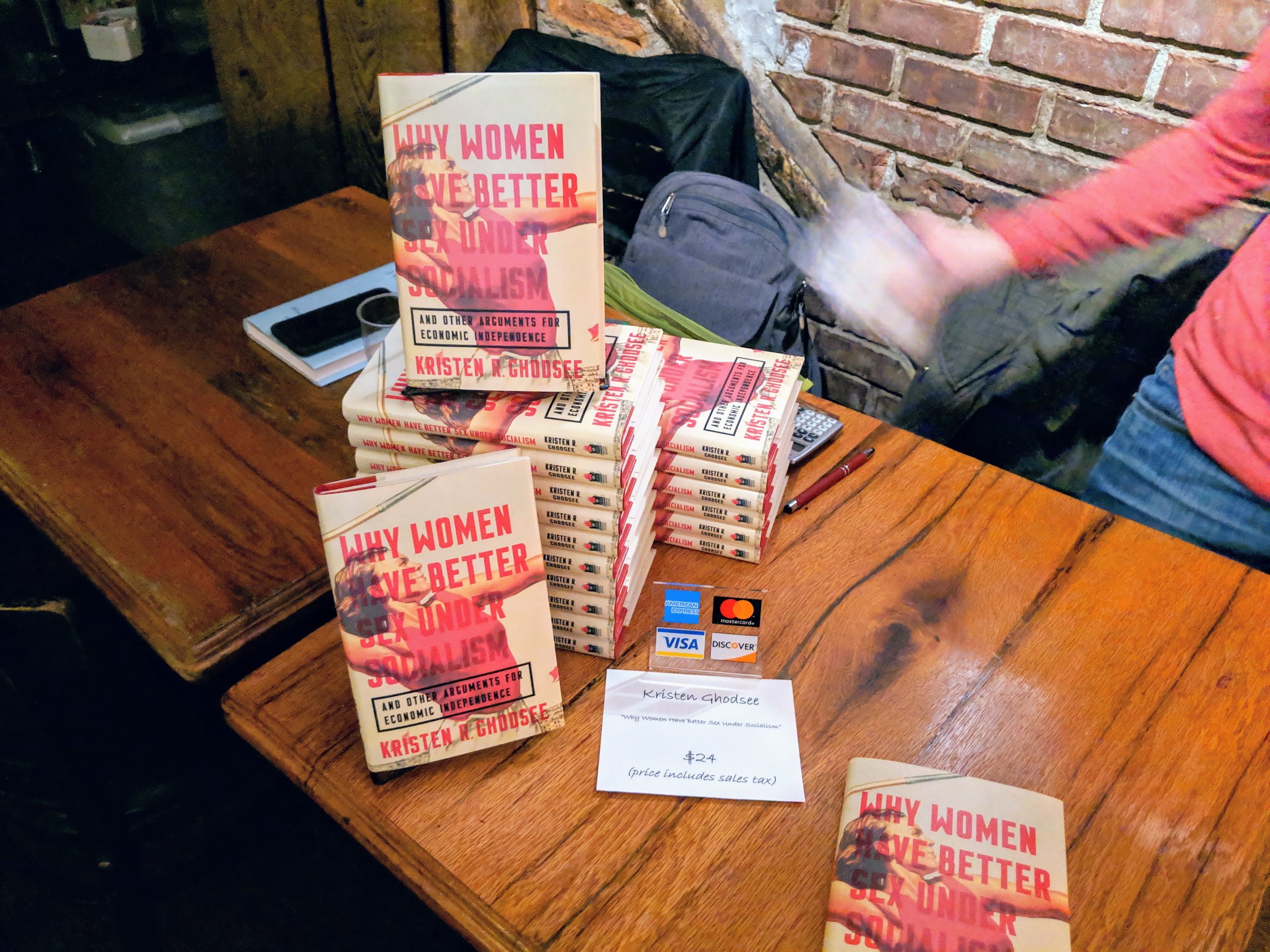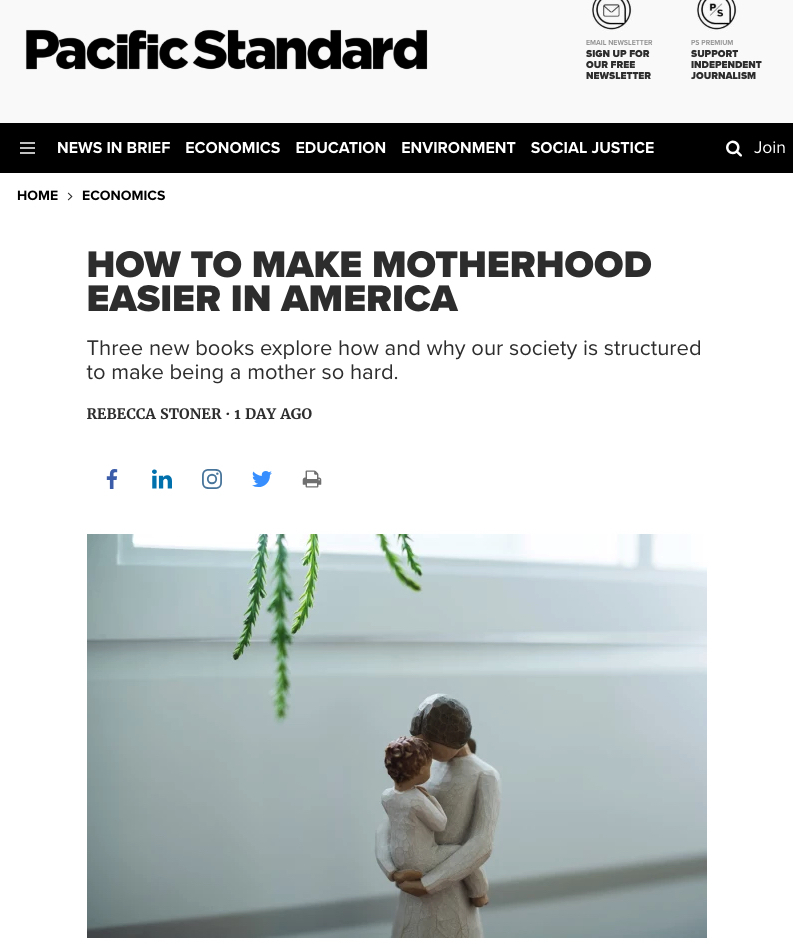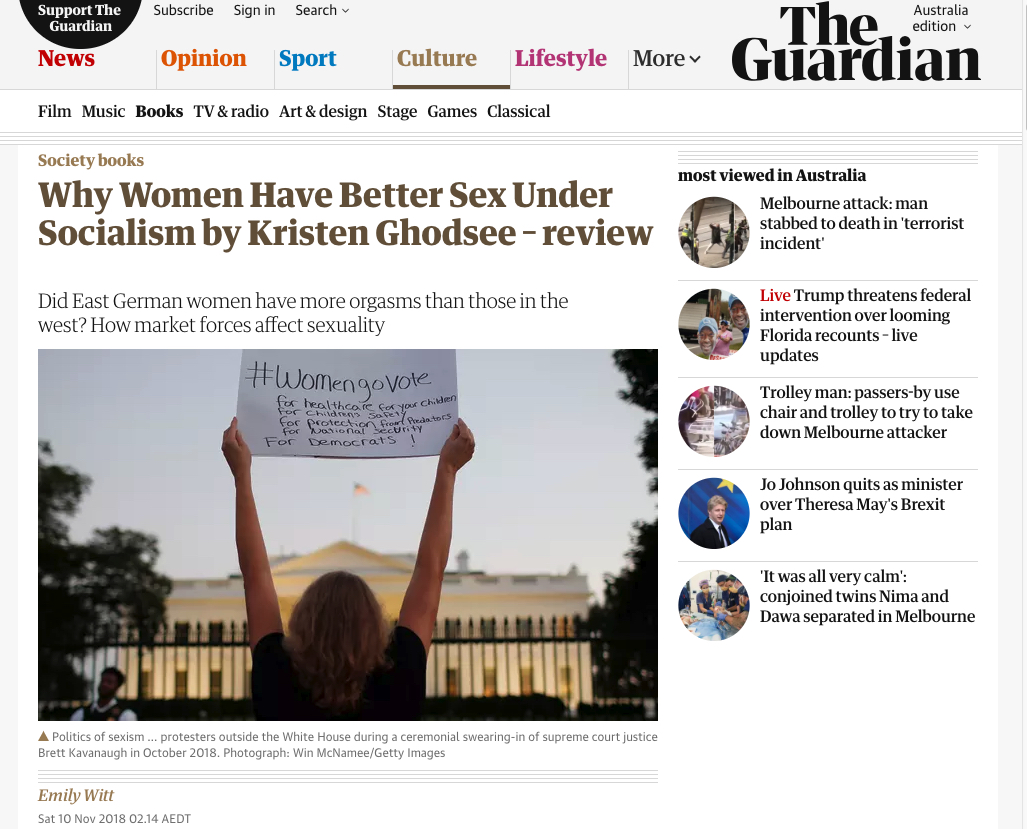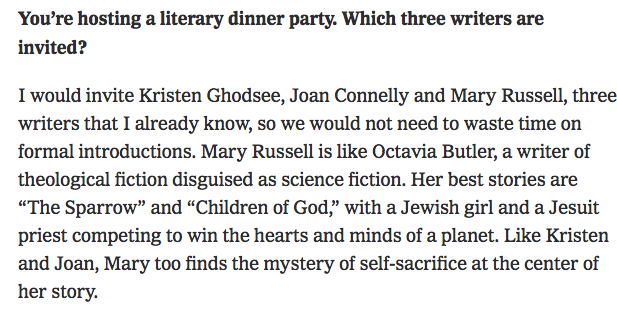The gods of publicity have smiled upon me. But I am most grateful to Alison Davies, publicist extraordinaire at Vintage. Link to the electronic version: https://inews.co.uk/news/long-reads/women-sex-gender-pay-gap-capitalism-sexism/
My new column in today's Washington Post
Read the new column here: “What the socialist Kama Sutra tells us about sex behind the Iron Curtain”
Reviews, reviews everywhere!
The last week has been a whirlwind of reviews to coincide with the original publication date of my book in the US. Perhaps because of Michelle Obama’s memoir, quite a few books were pushed back a week and my new publication date is Tuesday, November 20th, just in time for people to read it before Thanksgiving dinner. It will make for many debates around the table, I am sure. So far the reviews have been very encouraging. Even the conservative Times of London said that parts of the book were “fascinating,” and that “This book is not as silly as its title suggests.” That’s high praise from a Tory paper!
Event at Politics and Prose
Thanks to the folks at Politics and Prose for letting me come and talk about my book in DC. Always such a treat to meet readers.
Amazing night at the Half King reading series
Thanks so much to Glenn Raucher for making it happen, and for his astute questions.
What the Pool is reading this week!
“MARISA BATE IS READING… WHY WOMEN HAVE BETTER SEX UNDER SOCIALISM BY KRISTEN R GHODSEE
Thanks to Bernie Sanders and Jeremy Corbyn (in part, at least), the number of young people identifying as socialist is rocketing, and now academic Kristen R Ghodsee is making the feminist argument for some of the policies adopted by socialist states, which, she claims, resulted in women having better sex. The book is born out of a New York Times op-ed she wrote, which points to a study that found women in socialist East Germany had more orgasms than those in capitalist West Germany. As Ghodsee goes on to explore in her book, a government that funds childcare, encourages women into the workforce and supports women into economic independence significantly increases women’s happiness. Ghodsee is an academic, but the tone is accessible and relatable. She’s quick to point out the significant failings of communist states, while illuminating some of the brilliant, but often forgotten, women in and around the socialist movement.
• BUY Why Women Have Better Sex Under Socialism by Kristen R. Ghodsee or pop in to your local bookshop. ”
Two wonderful reviews from The Guardian and Pacific Standard!
Thanks so much to Rebecca Stoner and Emily Witt for their thoughtful reviews in Pacific Standard and The Guardian.
Spotted in the window of Waterstones on Gower Street in London
So thrilled to have chatted with Molly Fischer on The Cut podcast
Literary Dinner Party
Back on April 16, 2015, the New York Times Book review did a “By the Book” segment with Freeman Dyson. In the interview, he was asked what his ideal literary dinner party would be, and he included NYU’s Joan Connelly and me in his guest list (which also included Mary Russell). Well, this weekend in Princeton, Joan and I managed to have two thirds of this party together with Professor Dyson and his wonderful wife Imme and two other renowned historians from the Institute for Advanced Study. It was a truly amazing evening.
Thank you, iBooks, for making my book one of the best of November!
The literary gods at Apple have been generous! apple.co/bestbooksofnov
Thanks to Alina Yakubova!
In general, I hate cameras and I always feel awkward when I have to do author’s photos. But after several tries, the brilliant and talented photographer, Alina Yakubova, managed to get me to relax enough for her to snap a few decent shots.
Thanks to Lidjia Haas and Violet Lucca at the Harper's Blog!
Okay, so I am terribly slow on the uptake because I am not on social media, but I was so thrilled to discover this lovely conversation between Lidjia Haas and Violet Lucca at Harper’s Magazine about Why Women Have Better Sex Under Socialism.
https://soundcloud.com/harpersmagazine/fall-books-and-an-interview-with-rachel-kushner
The conversation starts at around 22:40 and goes for about 10 minutes.
Ok, now I'm convinced...
This helpful table, provide by the White House Council of Economic Advisers (CEA) today, has convinced me finally that socialism would be a terrible idea. We might get health care, education, and public transport, but look how much more we will pay for owning a Ford pickup truck. It’s a slam du(mb)k argument.
https://www.whitehouse.gov/briefings-statements/cea-report-opportunity-costs-socialism/
A whole day reading...
I spent the whole day yesterday rereading this biography from start to finish. What a luxury. So many great quotes from the amazing Aleksandra Kollontai.
Listen to an audio excerpt from Hachette Audio
Hachette Audio has just posted a clip of the audio version of my forthcoming book. It is a little odd to be British, but so far I think Esther Wane, the narrator, is doing a wonderful job.
The British book is a reality
To celebrate the arrival of my British author copies, my partner bought me a bottle of the good stuff. This book goes on sale in the UK and in the British Commonwealth as of November 1, 2018. This is going to be a wild ride.
Abraham Flexner from 1939 →
“Is it not a curious fact that in a world steeped in irrational hatreds which threaten civilization itself, men and women – old and young – detach themselves wholly or partly from the angry current of daily life to devote themselves to the cultivation of beauty, to the extension of knowledge, to the cure of disease, to the amelioration of suffering, just as though fanatics were not simultaneously engaged in spreading pain, ugliness, and suffering? The world has always been a sorry and confused sort of place – yet poets and artists and scientists have ignored the factors that would, if attended to, paralyze them.”
Autumn Reading
So now that summer has come and gone, I still have a pile of books that I meant to read but didn’t get around to. I fear I will not get to this pile until next summer, and by then it will have grown even bigger. But yesterday I decided to dive into this little book (very short) by Louis Menand from 2010. It’s a must read for anyone considering a Ph.D. in the humanities or social sciences, and I think it helps outsiders understand the weird culture of academia.
“It is the academic’s job in a free society to serve the public culture by asking questions the public doesn’t want to ask, investigating subjects it cannot or will not investigate, and accommodating voices it fails or refuses to accommodate.”
Kirkus Review →
“From paid maternity leave to employment assurances, an argument for the benefits of socialism for women.
Ghodsee (Russian and East European Studies/Univ. of Pennsylvania; Red Hangover: Legacies of Twentieth-Century Communism, 2017, etc.) sums up her thesis in the introduction: “Unregulated capitalism is bad for women, and if we adopt some ideas from socialism, women will have better lives.” And if you disagree with the author, she clearly doesn’t care. “If you don’t give a whit about women’s lives because you’re a gynophobic right-wing internet troll,” she writes, “save your money and get back to your parents’ basement right now; this isn’t the book for you.” Ghodsee’s in-your-face tone sets the stage for a book that takes readers on a pointed examination of the Soviet experiment. Using her years living in Bulgaria as fodder for the narrative, along with decades of research, she makes the case that there are lessons capitalist countries can and should learn from socialism—e.g., how socialists pushed for equity between men and women and the benefits of collective forms of support for child-rearing. At the same time, the author isn’t blind to the failures of socialist regimes. “Hungarians never managed to redefine traditional gender roles,” she writes, “and domestic patriarchy was strengthened by pro-natalist family policies.” Still, she points to examples of Scandinavian countries where socialist ideas are working to improve women’s lives: “A wider social safety net,” she writes, “like those in the contemporary Northern European countries, will increase rather than decrease personal freedom…no one should have to stay in a job she hates for health insurance, or stick with a partner who beats her because she’s not sure how she’ll feed the kids, or have sex with some sugar elder because she can’t afford textbooks.” Ghodsee makes a convincing case, though she fails to investigate how socialism addresses LGBTQ and people of color. Perhaps she’s saving that for another book.
While the title is the literary version of click-bait, the book is chock-full of hard-hitting real talk.”


